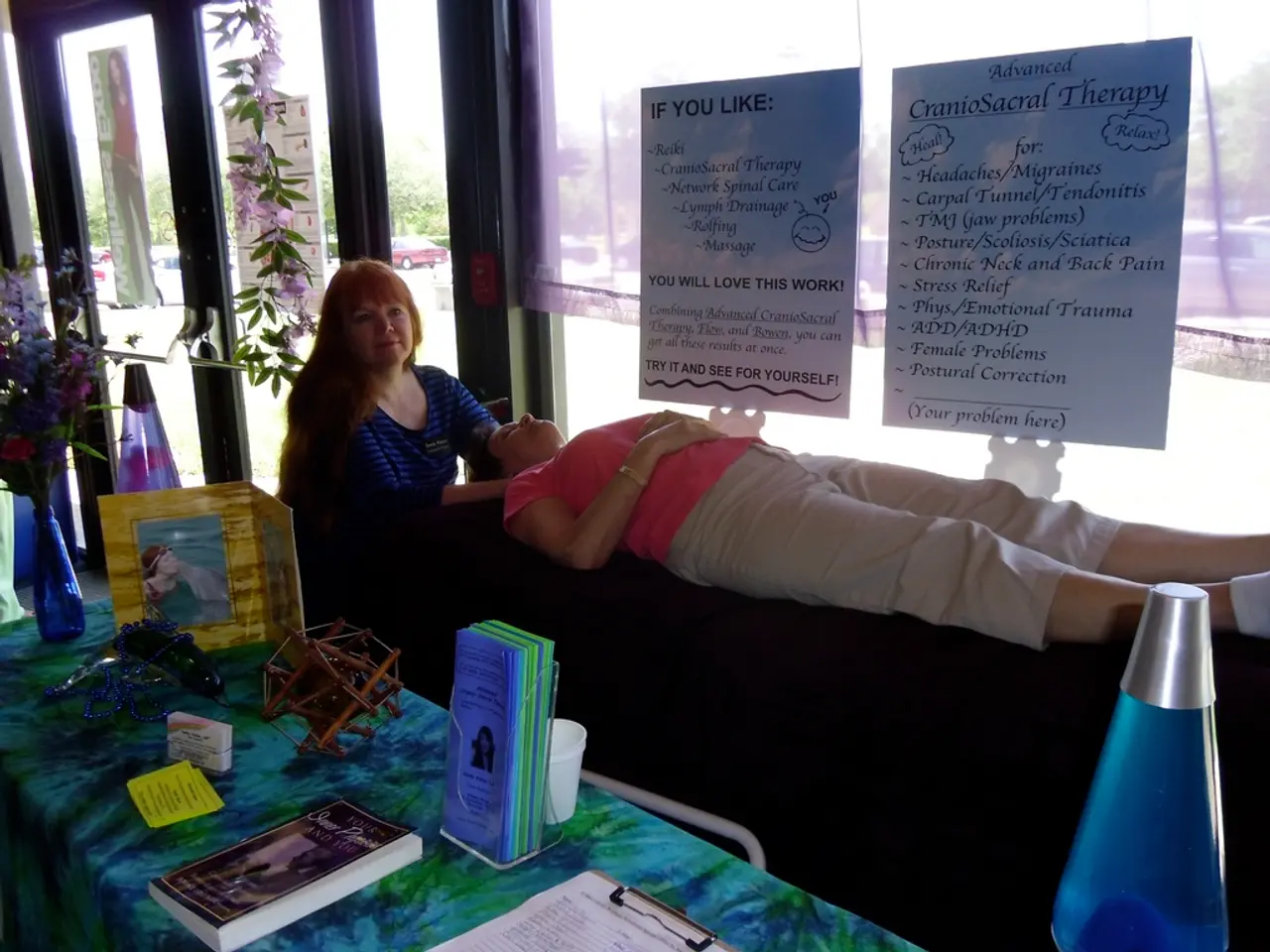Shingles treatment: Is homeopathy effective?
Shingles, also known as herpes zoster, is a complication that can affect individuals who have previously had chickenpox, often in adulthood and older adulthood [1]. The virus, varicella-zoster, remains in the body after recovery from chickenpox and can reactivate later in life as shingles when a person's immunity weakens [2].
Symptoms of shingles include pain, itching, or tingling on one side of the face or body, followed by a painful rash of blisters that typically scab over in 7-10 days [1]. If left untreated, shingles can be extremely painful and may lead to long-lasting pain [3].
Antiviral medications such as acyclovir, valacyclovir, and famciclovir can help in the treatment of shingles by preventing the virus from multiplying, shortening the duration of shingles, reducing symptom severity, and reducing the risk of complications [4]. The American Academy of Dermatology (AAD) recommends starting shingles treatment within 72 hours of developing a shingles rash for optimal effectiveness [5].
While some people may turn to homeopathic remedies for shingles, it is important to note that there is no robust scientific evidence supporting their effectiveness [5]. Homeopathy is a type of alternative treatment that involves treating health conditions using diluted doses of substances that would ordinarily cause those conditions [6].
A clinical trial found a small, statistically significant effect of homeopathy compared to placebo, but the quality of evidence was low and potentially biased [5]. Meanwhile, the Food and Drug Administration (FDA) does not review homeopathic products for safety or efficacy in diagnosing, treating, or preventing disease [7].
In contrast, new pharmaceutical treatments like GS-1 are under investigation and may offer future benefits but are distinct from homeopathy [3]. GS-1 is a new topical agent currently in clinical trials aimed at reducing shingles pain by blocking viral entry into cells.
In summary, antiviral medications are the standard treatment for shingles. Symptom relief via some natural or home-based remedies (cold compresses, oatmeal baths, calamine lotion) has limited evidence mainly for comfort, not underlying viral control [1][2][5]. No well-designed studies show homeopathy effectively treats shingles. Medical advice stresses early diagnosis and antiviral treatment as best practice [5].
If you suspect you have shingles, it is crucial to consult a doctor within 3 days to receive antiviral medications that can help relieve symptoms, speed up recovery, and prevent complications. Steroid eye drops may be prescribed to help treat shingles in the eye by reducing inflammation inside the eye.
References:
[1] Mayo Clinic. (2020). Shingles. Retrieved from https://www.mayoclinic.org/diseases-conditions/shingles/symptoms-causes/syc-20351554
[2] Centers for Disease Control and Prevention. (2021). Shingles. Retrieved from https://www.cdc.gov/shingles/about/index.html
[3] National Institutes of Health. (2021). Shingles: MedlinePlus Drug Information. Retrieved from https://medlineplus.gov/druginfo/meds/a682493.html
[4] American Academy of Dermatology. (2021). Shingles. Retrieved from https://www.aad.org/public/diseases/contagious-skin-conditions/shingles
[5] National Center for Complementary and Integrative Health. (2020). Shingles: In Depth. Retrieved from https://www.nccih.nih.gov/health/shingles-in-depth
[6] National Center for Complementary and Integrative Health. (2020). Homeopathy: In Depth. Retrieved from https://www.nccih.nih.gov/health/homeopathy-in-depth
[7] Food and Drug Administration. (2020). Homeopathic Products. Retrieved from https://www.fda.gov/consumers/consumer-updates/homeopathic-products
- Mental health can be impacted by the pain and stress caused by untreated shingles, as evidenced by various studies on health-and-wellness.
- Incorporating skin-care practices, such as cold compresses and oatmeal baths, may provide temporary relief from the discomfort of shingles, but they do not control the underlying viral infection.
- The science behind new treatments like GS-1, designed to reduce shingles pain by blocking viral entry into cells, still requires further research and investigation, setting it apart from conventional antiviral medications.




